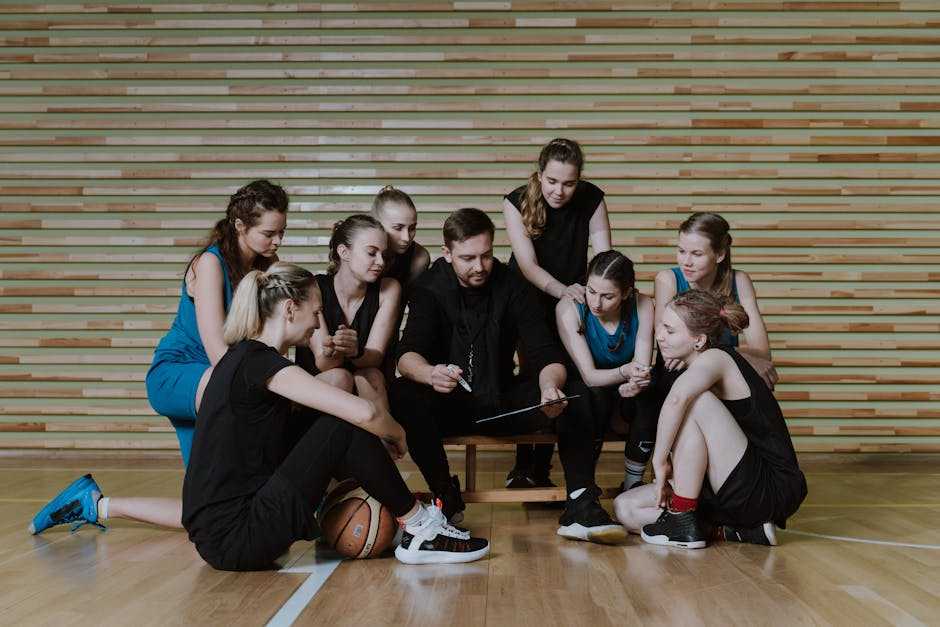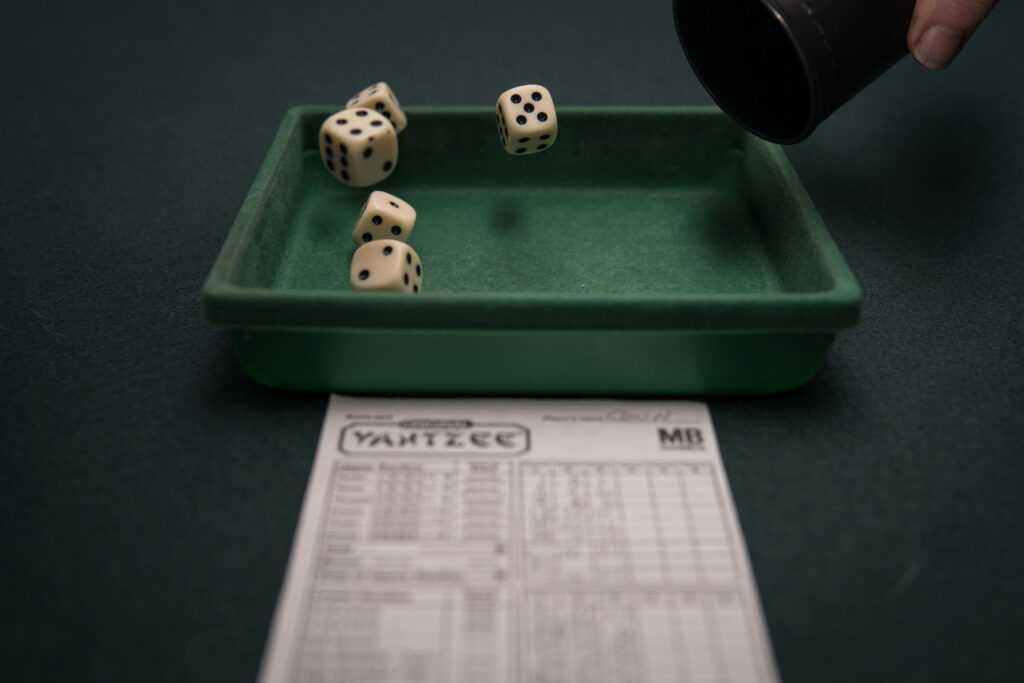Understanding Problem Gambling
Problem gambling isn’t just about losing money. At its core, it’s when gambling starts taking more than it gives—your time, your focus, your sense of control. It becomes a problem when it interferes with daily life, relationships, work, or mental health.
There are patterns to watch for. These include chasing losses, lying about time or money spent gambling, borrowing to stay in the game, and neglecting responsibilities. Some people gamble to escape stress or emotional pain, which can turn into a loop that’s hard to break. The rush of a win keeps them coming back, even when the losses pile up.
Why don’t more people seek help sooner? Guilt and shame are big obstacles. Many problem gamblers feel like they should be able to fix it themselves. Add to that the fear of being judged or misunderstood, and it’s easy to keep it hidden. But understanding that this is a behavioral health issue—not just a series of bad choices—is the first step toward getting support that actually works.
Step One: Recognizing the Need
Problem gambling doesn’t usually start with a crisis. It starts quietly—one extra bet, a missed bill, a white lie to cover up a loss. That’s why self-awareness matters. Recognizing your own patterns is the first real step toward change. If gambling stops being just entertainment and starts feeling like a need—or worse, an escape—it’s time to pause.
Here’s a simple check: Are you chasing losses? Hiding time or money spent gambling? Feeling guilt afterward? These aren’t just bad habits—they’re warning signals. When it’s no longer just about fun, when frustration or secrecy creeps in, it’s shifted into something deeper.
Talking to someone helps. No lectures, no drama—just start the conversation. Pick someone you trust: a friend, family member, maybe someone who’s noticed the change. Be honest. Say, “I think I might need help with this.” That small moment of honesty can break the isolation. Support starts with being real—with yourself and with someone else.
Professional Help That Works
There’s no one-size-fits-all solution for problem gambling, but professional treatment can make a powerful difference. If you (or someone you know) is ready to take steps toward recovery, connecting with trained professionals is a solid starting point.
Certified Gambling Counselors and Therapists
Professionals who specialize in gambling addiction understand the unique psychological and behavioral aspects of the disorder. These experts can offer targeted guidance, tools, and support tailored to each individual’s needs.
- Certified problem gambling counselors are trained to assess and treat gambling-specific issues
- Therapists can help address underlying mental health challenges like anxiety, depression, or trauma
- Many clinicians offer both individual and group counseling formats
To find a licensed gambling counselor near you, consider:
- Visiting your state’s health department website
- Searching the National Council on Problem Gambling (NCPG) provider directory
- Asking for referrals from your primary care doctor or mental health provider
Treatment Programs: Inpatient vs. Outpatient
Not all cases of gambling addiction require residential treatment, but for some, it can be the most effective option.
Inpatient Programs
- Provide 24/7 care in a structured environment
- Ideal for individuals who need intensive support or distance from gambling triggers
Outpatient Programs
- Offer therapy and support on a flexible schedule (e.g., nights or weekends)
- Allow individuals to continue working or managing home responsibilities
- Often include group sessions, therapy, and educational workshops
The choice between inpatient and outpatient treatment depends on several factors, including the severity of the addiction, personal commitments, financial resources, and overall mental health.
Getting a Formal Evaluation
Before jumping into a treatment plan, it’s important to understand the depth and nature of the problem. A formal evaluation conducted by a licensed professional can provide clarity.
Here’s what to expect:
- One-on-one interviews to assess gambling habits, history, and impact
- Screening for co-occurring disorders like depression or substance misuse
- Development of a personalized treatment plan based on the evaluation results
Getting a comprehensive evaluation is often the first official step toward recovery—and can lead to faster, more effective results.
Support Groups That Make a Difference
Support groups offer community, accountability, and a lifeline for those struggling with gambling addiction. They provide safe spaces where individuals can share their experiences, gain insight from others, and take real steps toward recovery.
Gamblers Anonymous (GA)
Gamblers Anonymous is one of the most well-known support options for problem gamblers. Modeled after Alcoholics Anonymous, GA uses a 12-step framework focused on honesty, peer connection, and personal accountability.
What GA Offers:
- In-person and virtual meetings
- Sponsorship from more experienced members
- A structured recovery approach through the 12 Steps
- Anonymity and confidentiality
Why GA Works:
- Provides a non-judgmental space to speak openly
- Encourages consistent progress and commitment
- Shows that lasting recovery is possible through community support
SMART Recovery
For those looking for a science-based, non-12-step alternative, SMART Recovery offers tools grounded in cognitive-behavioral therapy (CBT) and motivational techniques.
SMART Features:
- Focus on self-empowerment and practical recovery tools
- Emphasis on managing urges and changing behavior
- Access to online and in-person meetings
- No religious or spiritual component
What Makes SMART Unique:
- Evidence-based strategies
- Flexible, evolving program
- Ideal for those preferring a non-spiritual approach
What to Expect in a Typical Meeting
Whether you choose GA or SMART Recovery, entering your first meeting can be intimidating. Knowing what to expect helps ease anxiety.
Common Elements in Support Meetings:
- Group check-ins where attendees share wins and setbacks
- Guided discussions or reading from recovery literature
- An opportunity to gain feedback and support
- Encouragement to attend consistently and participate actively
Key Takeaways for First-Time Attendees:
- You’re not alone—others are on the same journey
- Meetings are judgment-free zones
- Participation is encouraged but not required
- Consistency builds comfort and trust over time
Both GA and SMART Recovery show that structured, community-based support can be a turning point. Finding the right group may take time, but it’s a powerful step toward long-term recovery.
Digital Help: Online Resources & Tools
Not everyone feels ready to walk into a meeting or talk face-to-face. That’s where digital tools come in—quiet, available 24/7, and surprisingly effective for many people.
Start with apps. Tools like Gamban, BetBlocker, and Freedom let you block access to gambling websites and apps across all your devices. Some go a step further by allowing trusted contacts (like your partner or therapist) to lock settings you can’t override. Others, like Mindspa or Reframe, focus more on behavior tracking and self-awareness, helping you notice patterns before they spiral.
Forums can be a lifeline. Places like Reddit’s r/problemgambling or Gambling Therapy’s message boards give you a quiet space to vent, read others’ stories, or ask for advice anonymously. You’ll find people who truly get it—and sometimes that’s enough to feel less alone.
Crisis hotlines and live chat options round it out. Services like the National Problem Gambling Helpline (1-800-GAMBLER) or NHS Gambling problems support in the UK offer live support and referrals. Gambling Therapy and Lifeline also have live chat tools for more immediate help. No pressure, no judgment—just someone to talk to when it feels heavy.
Digital help doesn’t replace human connection—but it makes the first steps easier. Small tools. Big difference.
Help for Families and Partners
Living with or loving someone who struggles with problem gambling takes a toll—emotionally, financially, and relationally. The stress hits in waves: bills go unpaid, trust gets stretched thin, and you often end up carrying the weight quietly. It’s not easy.
First, the emotional impact. Guilt, anxiety, frustration, and isolation are common. You’re not imagining things, and you’re not overreacting. Those emotions are real, and they deserve attention. That’s why connecting with others who’ve been through it can be powerful. Support groups like Gam-Anon or SMART Recovery for Friends & Family offer a place to talk without judgement, swap hard-earned wisdom, and feel less alone.
Then there’s the money. Gambling losses can destabilize a household, and secrecy around spending makes things worse. Family members often end up picking up the pieces—literally and emotionally. Financial counseling can help you rebuild. But healing starts with clarity, not blame.
Communication is the glue that holds things together when everything feels like it’s falling apart. Set firm but respectful boundaries. Be direct but calm. It’s okay to say “I can’t support this behavior,” and mean it. Healthy limits aren’t punishments—they’re self-preservation.
This isn’t just the gambler’s fight. It’s yours too. But you don’t have to go through it alone.
Financial Recovery and Damage Control
Problem gambling doesn’t just take an emotional toll—it wrecks finances too. For many, the spiral continues because they don’t know how to start untangling the money mess. Step one: face the numbers. Seeing the damage clearly is tough, but it’s how you start regaining control.
Budgeting helps bring structure. That might mean consolidating bills, cutting non-essentials, or shifting to cash-only spending. Tools like debt calculators or expense tracking apps make it easier, but the key is being brutally honest with yourself. Short-term restrictions often make long-term recovery manageable.
Financial counselors can be life-changing. These professionals help build customized plans, negotiate with creditors, and keep you accountable. Look for non-profit services first—they’re usually low-cost or free, and built to support, not sell.
If the debt load is severe or there are legal complications (like bankruptcy, wage garnishment, or fraud accusations), legal aid might be necessary. Local legal aid organizations, especially those tied to mental health or addiction services, often have experience with cases like these. Don’t go it alone—there are people who can help untangle even the worst financial knots.
Recovery isn’t just about stopping gambling—it’s about putting life back together. Managing the money side is a big part of that.
Long-Term Recovery and Relapse Prevention
Staying in recovery isn’t just about stopping gambling—it’s about replacing it with something better. That starts with structure. A solid routine gives your day shape and keeps idle time from becoming risky time. Simple habits make a difference: wake up at the same time, plan meals, set tasks, move your body, and stay busy in ways that feel meaningful. Recovery thrives on predictability.
Next, connection. Isolation can breed relapse. Staying in touch with support communities—whether it’s group meetings, a buddy you check in with, or an online forum—helps ground you when things feel shaky. You don’t have to be loud or overshare. Just showing up matters.
Triggers are part of the deal. Stress, boredom, easy access to money, or even something like watching sports can spark urges. Know your triggers. Plan around them. Replace the reaction. Go for a walk, text someone, journal. Keep a few emergency tools in your back pocket for the tough moments.
You’re not expected to be perfect. But if you build a life that’s centered on structure, community, and honest self-awareness, the pull to gamble weakens. And that’s when real recovery sticks.
Responsible Gambling Resources
When it comes to gambling, control is everything. Setting firm limits—on time, money, and frequency—is a straightforward line of defense. Most platforms now offer built-in tools that let you cap deposits, lock session times, or even block access entirely for a set period. Use them. They’re not for casual players anymore; they’re for anyone who wants to keep things balanced.
Self-exclusion is sharper than ever. You can opt out of gambling sites for months or permanently, depending on what you need. Some national programs even extend that protection across multiple platforms. If gambling is starting to interfere with your routine or relationships, it’s worth activating.
Pausing is powerful too. Taking a break—whether for a weekend or a few months—can reset your habits and give you space to reflect. The point isn’t to shame yourself for slipping; it’s to interrupt autopilot behavior before it gets destructive.
For more hands-on strategies, tools, and advice, check out The Ultimate Guide to Safe and Responsible Gambling.
Moving Forward
Some weeks you’ll feel strong. Other days you’ll want to give up. That doesn’t mean you’re failing. Recovery from gambling isn’t a straight line—it bends, loops, sometimes even steps back before it moves forward. The key isn’t perfection. It’s not quitting after a rough night or two.
Help works. People do recover. Whether through a therapist, a support group, an app, or just talking honestly with someone in your life, change starts with action. The tools are there—you’ve just got to use them.
Start with one step. Maybe it’s finding a meeting. Maybe it’s deleting a betting app. Take that one step, then another. Stay committed, even when it’s hard. And when it gets too heavy, speak up. Help isn’t just available—it’s effective. You don’t have to do this alone.


 Cairis Ollvain, co-founder of GambleFitnessSplash brings a visionary approach to the platform by combining fitness, responsible gambling, and technology into one space. Cairis focuses on creating forward-thinking content that empowers readers to achieve balance, health, and smarter choices.
Cairis Ollvain, co-founder of GambleFitnessSplash brings a visionary approach to the platform by combining fitness, responsible gambling, and technology into one space. Cairis focuses on creating forward-thinking content that empowers readers to achieve balance, health, and smarter choices.

